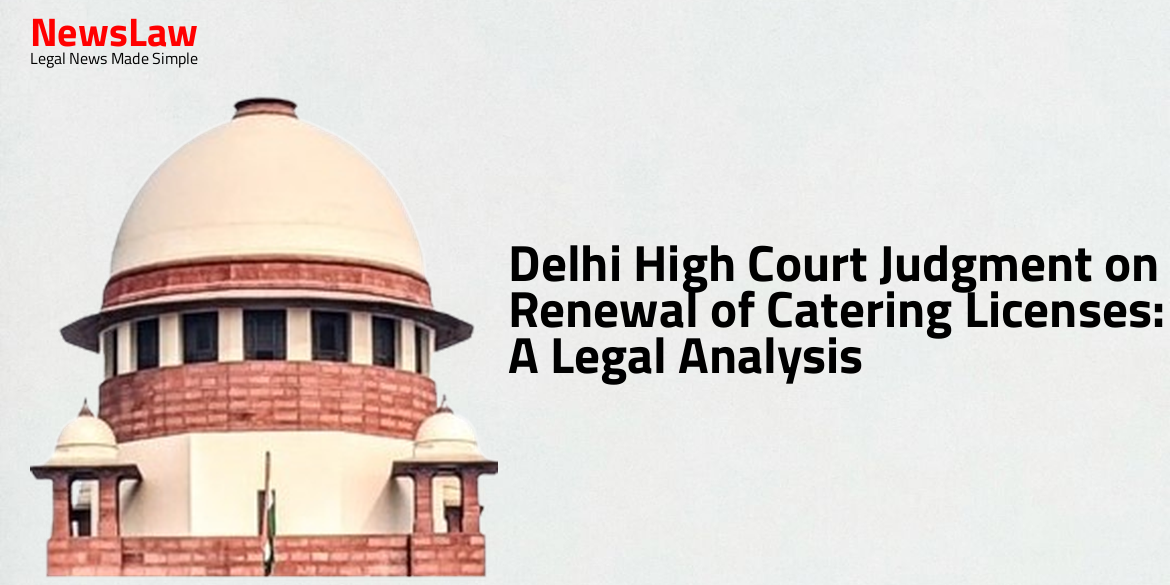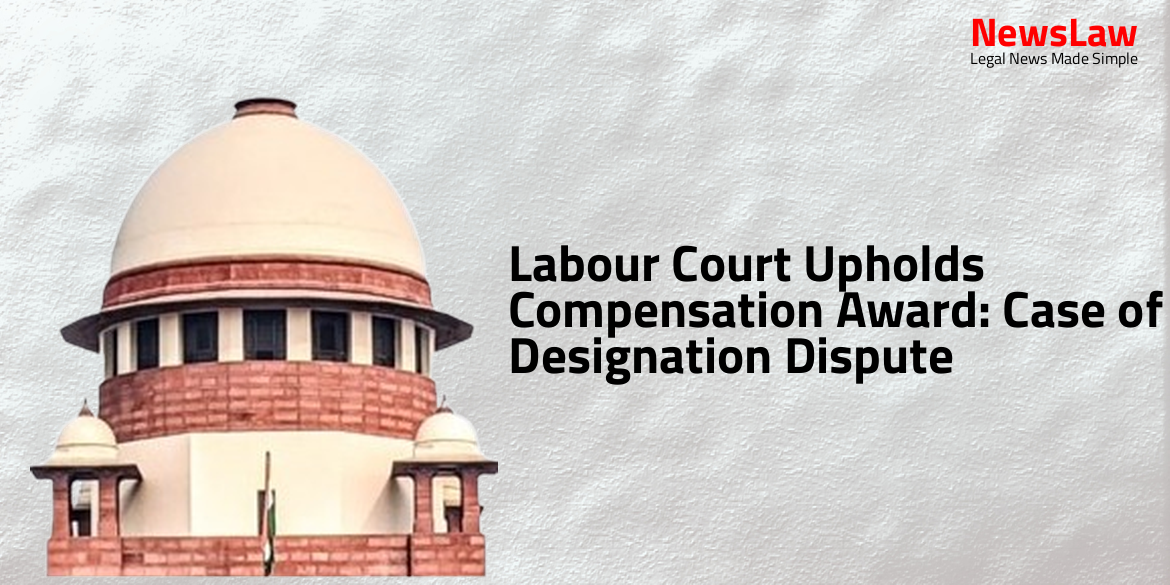In a noteworthy ruling, the Delhi High Court has issued a judgment concerning the renewal of catering licenses, addressing the concerns raised by vendors against the Railways. The court’s decision carries implications for the application of legal principles in contractual matters related to catering services, as outlined in the Catering Policy 2017. Stay informed about the latest developments in this legal analysis.
Arguments
- The petitioners argue that they cannot claim any benefit from the letter dated 21.05.2019.
- They contend that even if a small part of the cause of action arises in Delhi, it does not solely determine the court’s jurisdiction to decide on the matter.
- The licenses for reserved categories are re-tendered exclusively within that category, while those for the general category undergo a similar process.
- The petitioners claim that the actions of the respondents are arbitrary and violate Article 14 of the Constitution.
- They argue that the Catering Policy 2017 and license agreements include an arbitration clause.
- The petitioners maintain that the exclusive jurisdiction clause in all license agreements does not make the petitions non-maintainable.
- They emphasize that the Catering Policy 2017 balances the right to livelihood and equal opportunity, preventing monopolization of licenses.
- The petitioners contend that clause 11 of the Catering Policy 2017 violates Articles 14, 19(1)(g), and 21 of the Constitution as it restricts the right to license renewal.
- They claim they executed the license agreement under coercion, economic duress, and unequal bargaining power between the vendors/petitioners and railways.
Analysis
- The court analyzed the issue of territorial jurisdiction to entertain the writ petitions.
- The court considered the application of Article 14 of the Constitution in relation to the actions of the railways.
- The judgment discussed the non-renewable nature of licenses as per the Catering Policy 2017.
- Force Majeure clause implementation was advised for all non-operational catering and vending contracts due to the lockdown.
- The court highlighted the concept of vested rights and perpetual renewal of licenses.
- Various sub-quotas were mentioned concerning reservations in catering units.
- The court emphasized the importance of adhering to contractual terms and dispute resolution clauses.
- The judgment explained the limitations of court interference in policy decisions and contractual matters.
- The extension of contract periods for non-operational contracts was addressed based on Force Majeure.
- The court held that a license does not confer a property interest to the grantee.
- The analysis considered the impact of renewing licenses on fairness, competition, and opportunities for other individuals.
- The Catering Policy 2017’s Clause 11 was a focal point of the analysis, emphasizing non-extension or renewal of licenses.
- The court highlighted the role of public participation models in catering unit operations.
- The judgment addressed the petitioners’ obligations under the terms of their licenses and the freedom to participate in future tenders.
- Considerations for reservations, social welfare principles, and the rights of marginalized minorities were also discussed.
- The court emphasized the revocable nature of licenses and the absence of indefeasible renewal rights.
- The need for precise pleading of undue influence or coercion in contractual matters was underscored.
- Referenced legal cases and interpretations were used to support the court’s analysis.
- The limitations of issuing a writ of Mandamus for policy-making or legislation purposes were clarified.
- The court’s jurisdiction to entertain a writ petition is based on the averments in the petition, regardless of their truth
- Paragraph 1744 of the Indian Railways Commercial Manual is challenged in the petition as the root cause for punitive demands
- Mr. Kaul argues that paragraph 1744 violates specific sections of the Railways Act, 1989
- Examination of the merits of the challenge to paragraph 1744 is not done, but its existence and origin from the Railway Board in New Delhi is acknowledged
- The doctrine of estoppel by election is a rule of equity that requires a breach or threat to enforce certain rights for a writ of Mandamus to be issued
- Judicial review and mandamus for policy framing are distinct actions
- The doctrine of election is based on estoppel, where one cannot assert a right they previously denied
- The submission that accepting tenure conditions was due to unequal bargaining position is deemed untenable
- Contracts awarded, whether by the State or private parties, are commercial transactions with their own terms
- In executory contracts, uncertainties can arise making the contract non-viable, subject to court interpretation
- Policy decisions are challenged only if they infringe fundamental or statutory rights
- State contracts with entities are governed by contract terms and laws, without guaranteeing profits or against losses
- Entering into contracts through tenders is voluntary and not compulsory
- A party cannot flip-flop or be inconsistent in their approach (blow hot and cold) regarding a contract
- Tender participation involves scrutinizing requirements, bidding as an offer, and contract formation upon state acceptance
- Individual license agreements and Catering Policy 2017 contain an arbitration clause for grievances related to extension or damages.
- No merit found in the present petitions, they are dismissed.
- Petitioners granted 3 months to vacate catering units for transition to alternative vending arrangements.
- Transition period starts from the extended license period or the date of the judgment, whichever is later, subject to payment of usual license fee.
Decision
- The present petitions are held to be maintainable.
- Renewal of License 14 is mentioned as a specific point in the judgement.
Case Title: VED PRAKASH MISHRA Vs. UNION OF INDIA & ORS. (2024:DHC:4476)
Case Number: W.P.(C)-6771/2024



